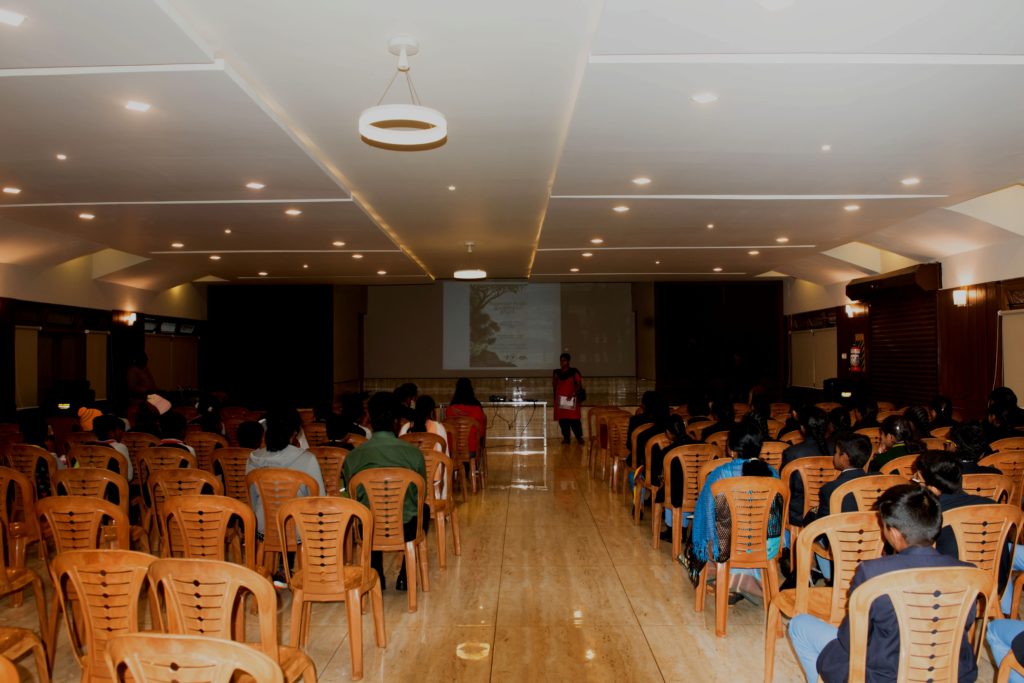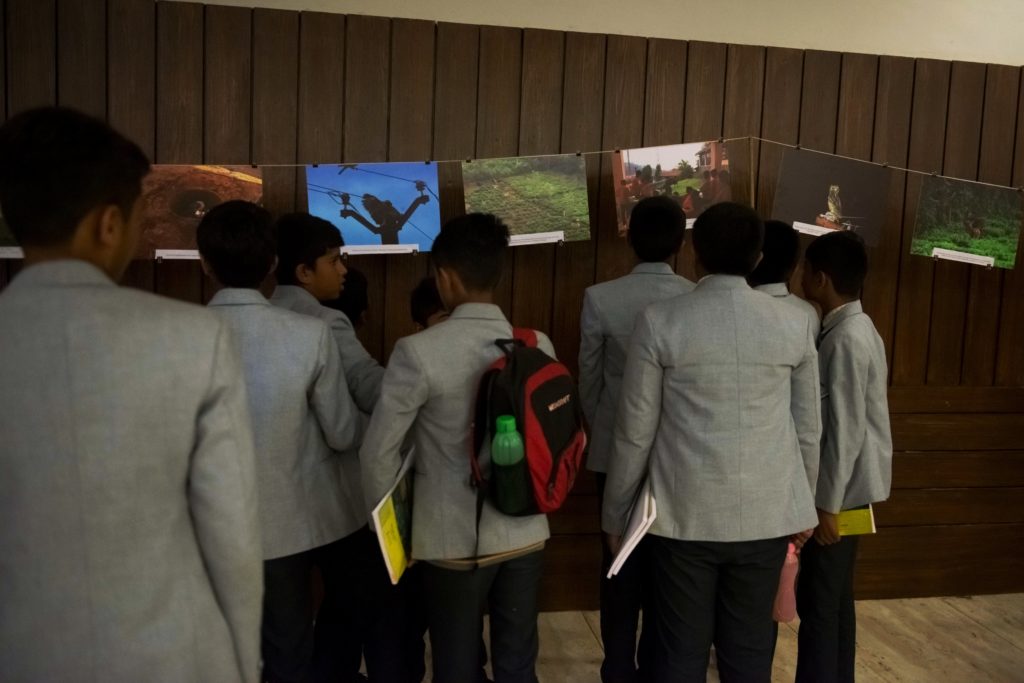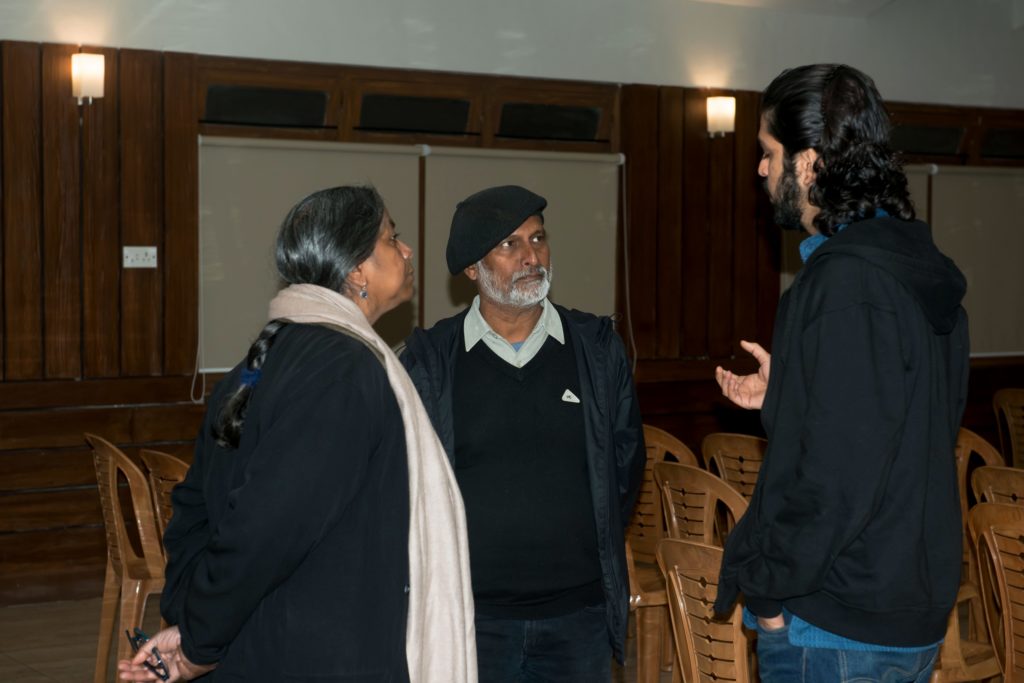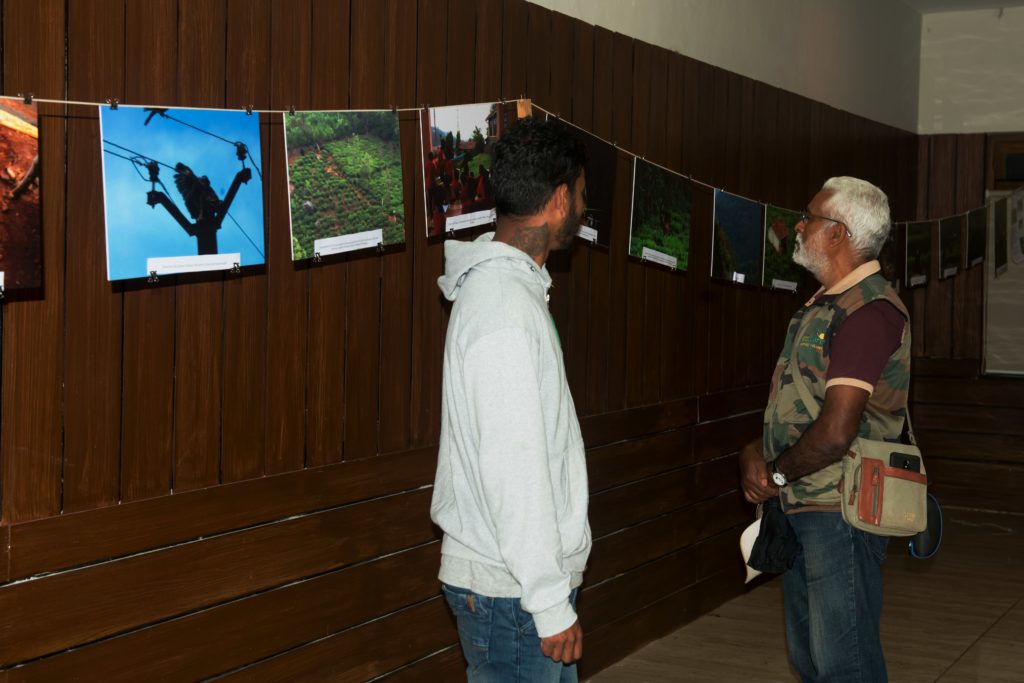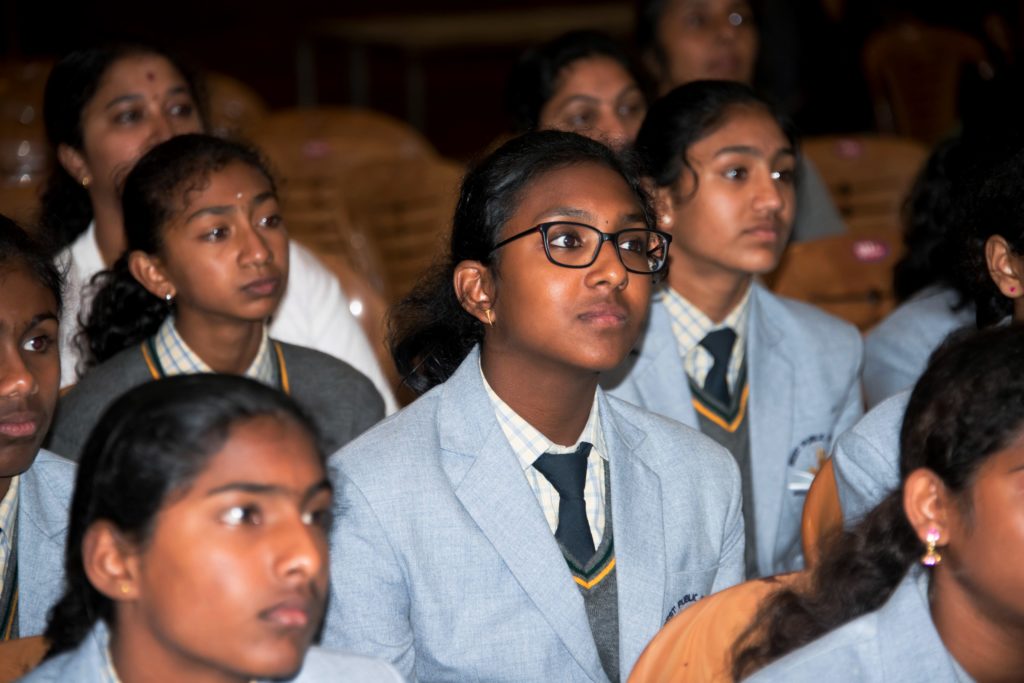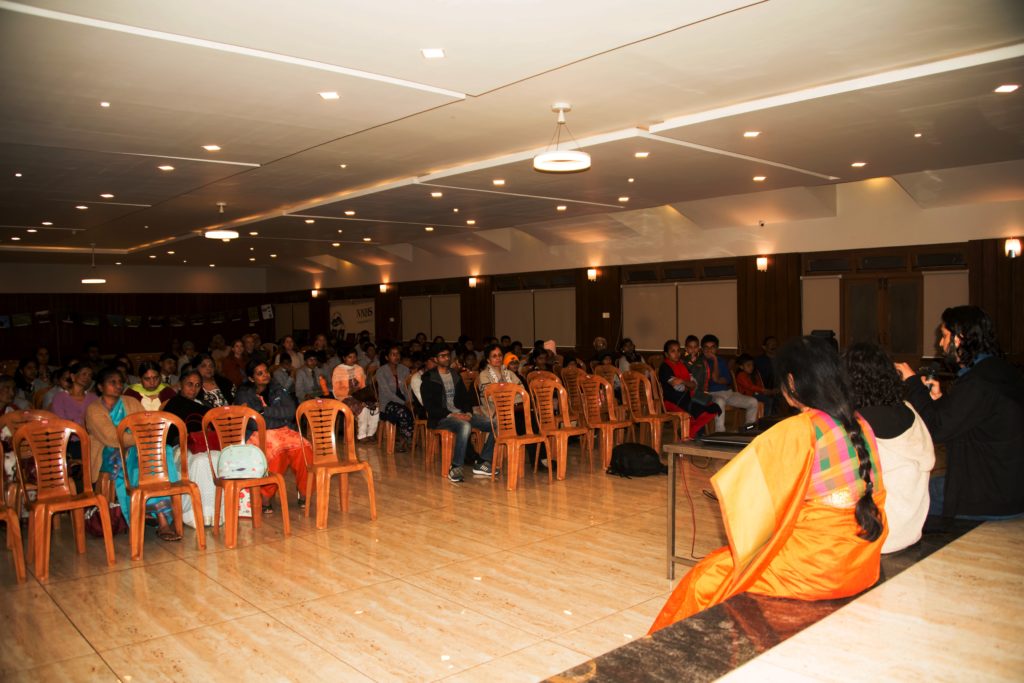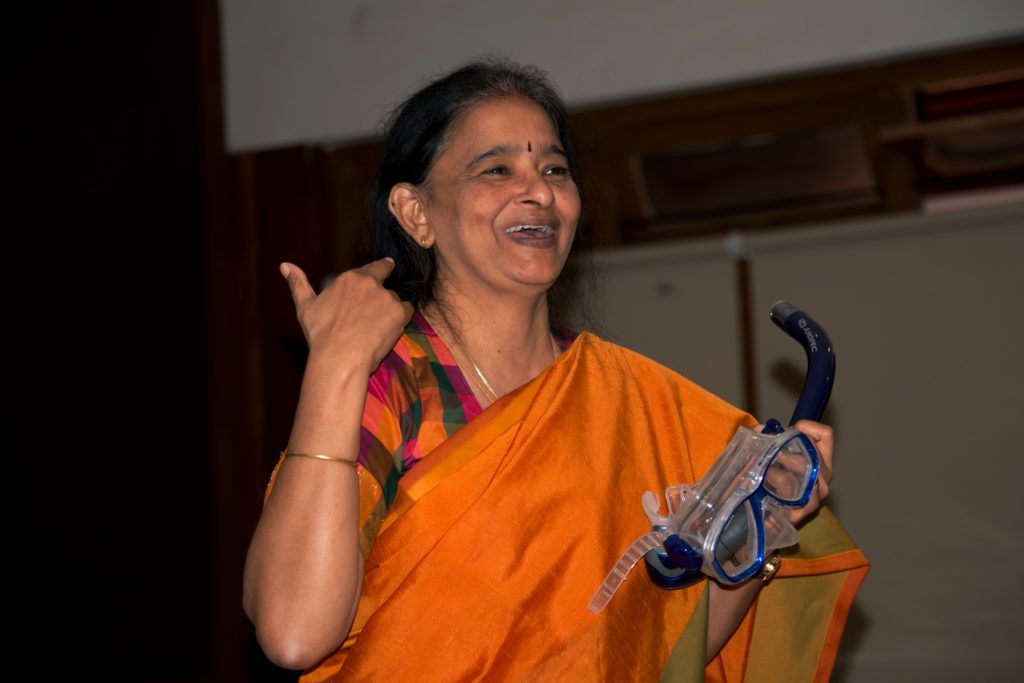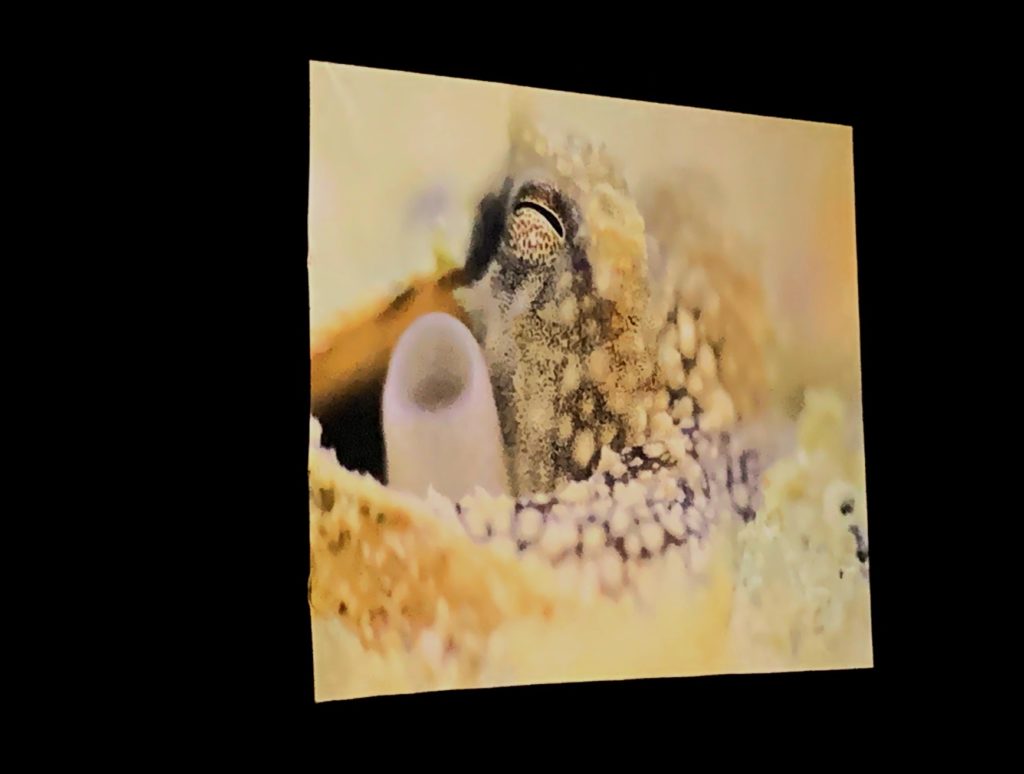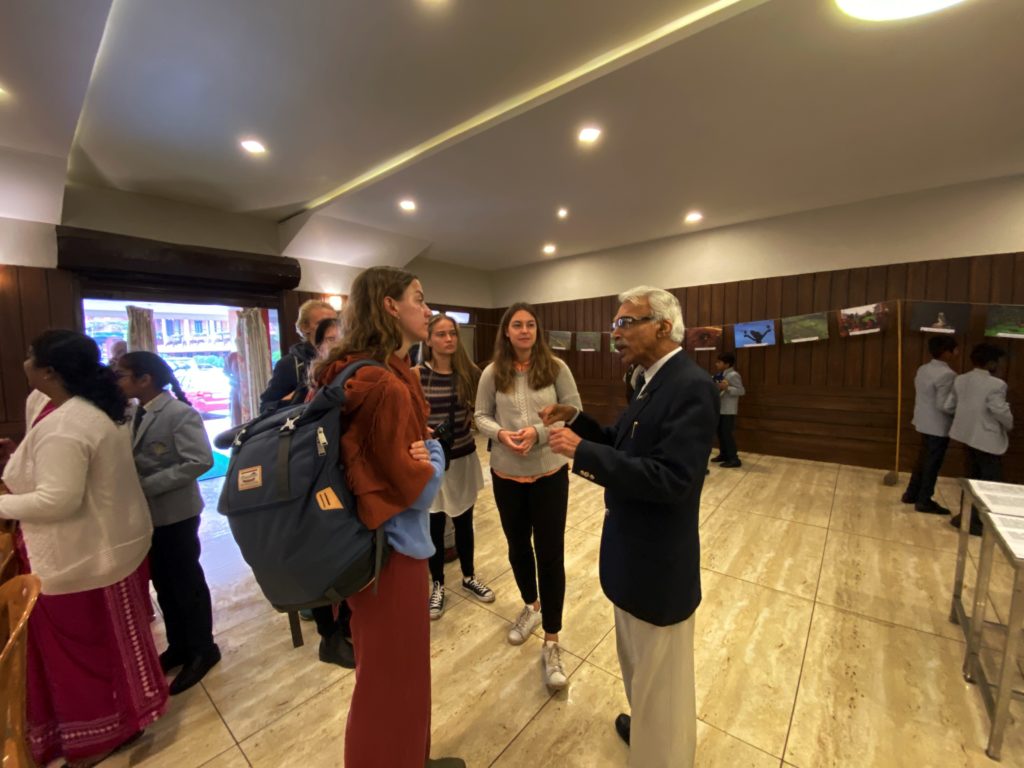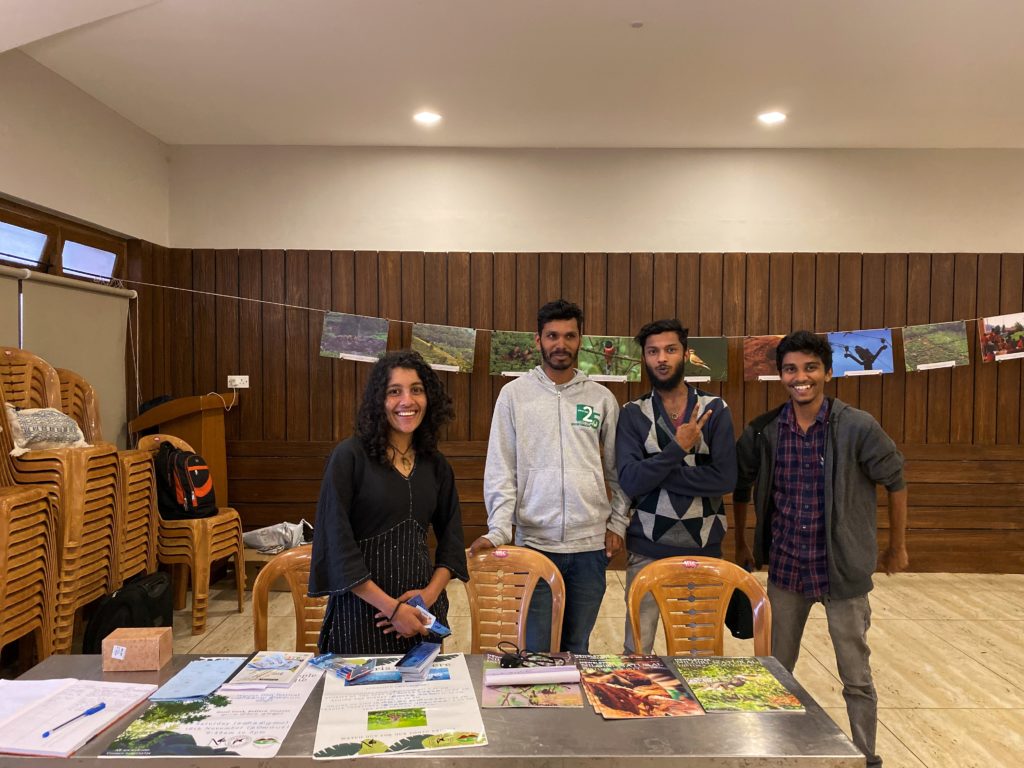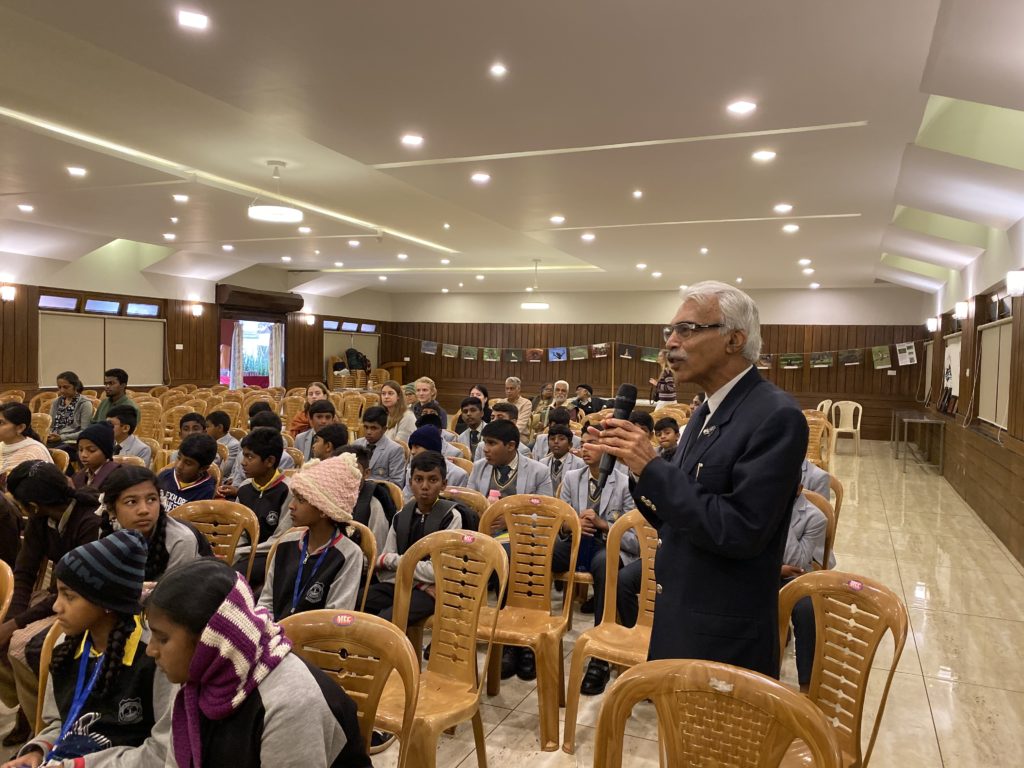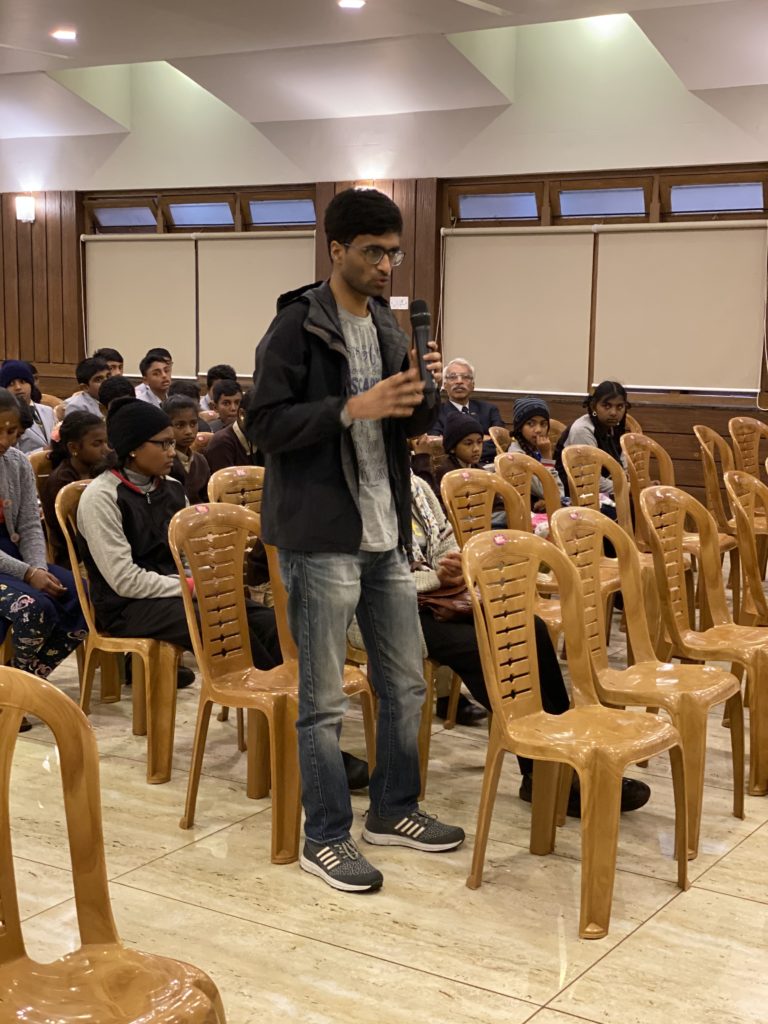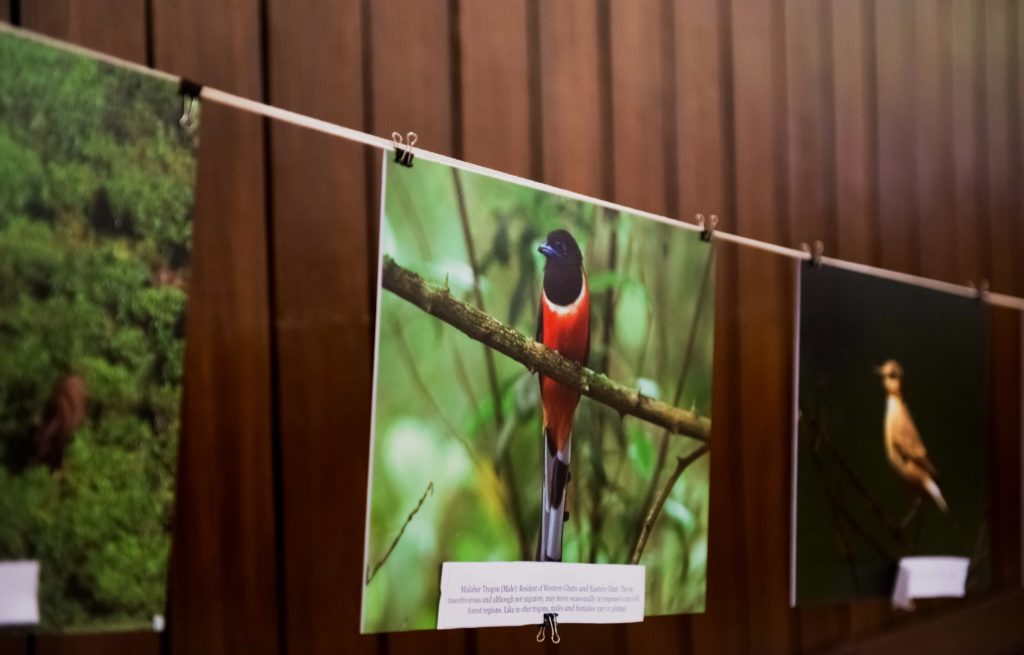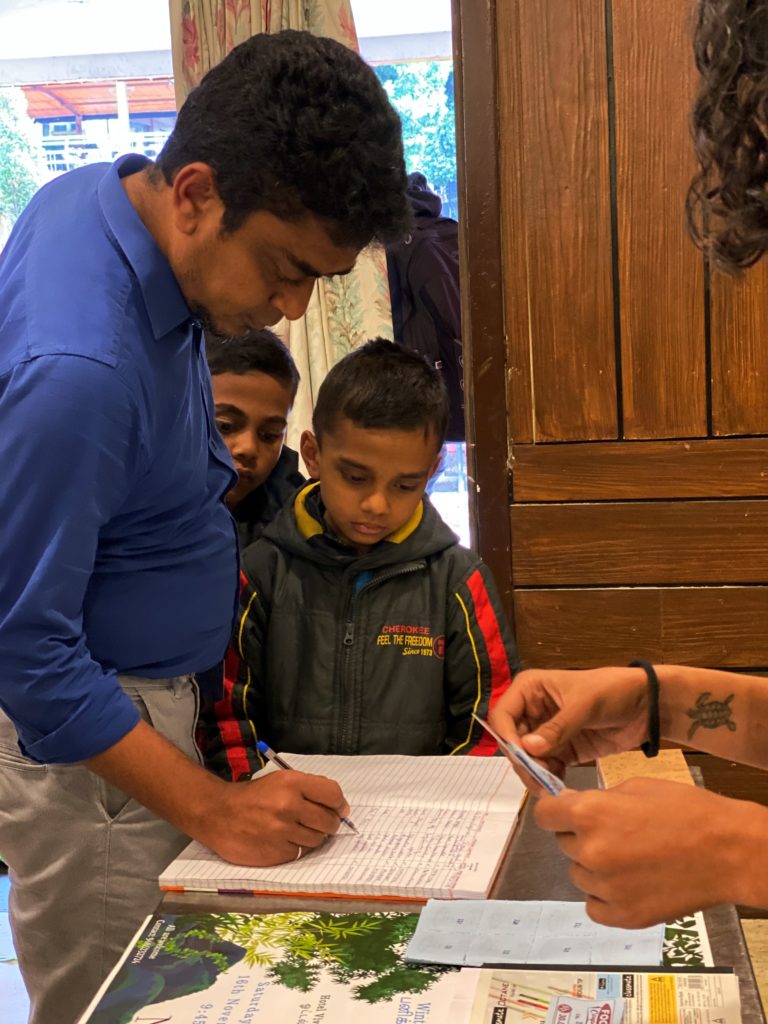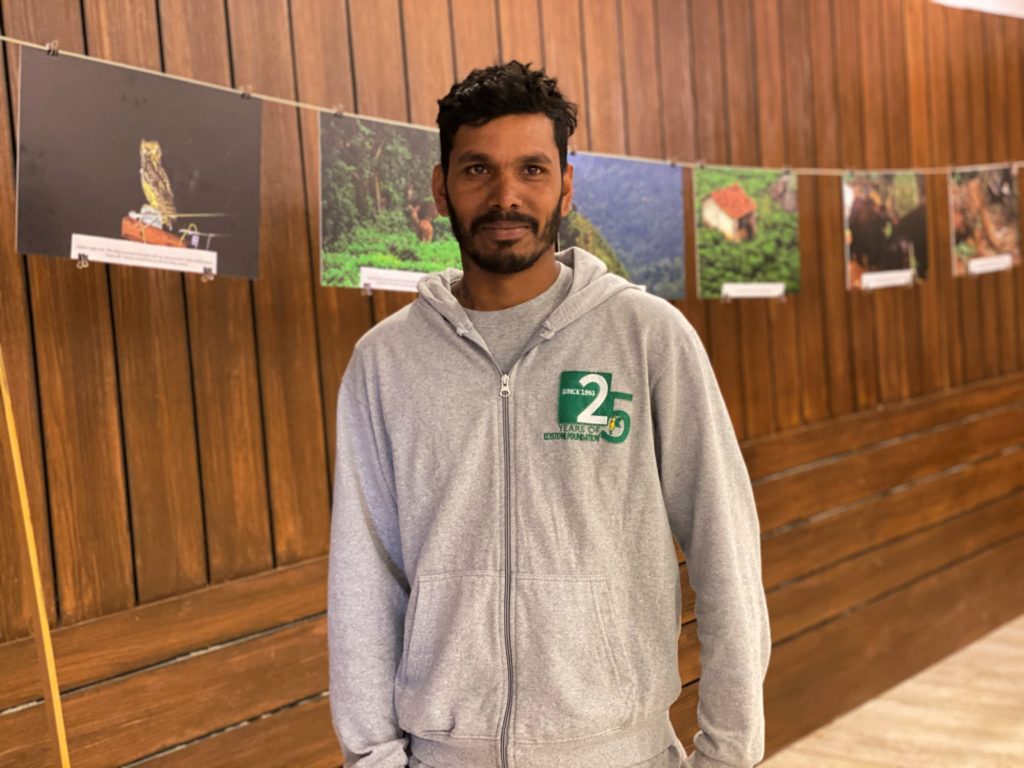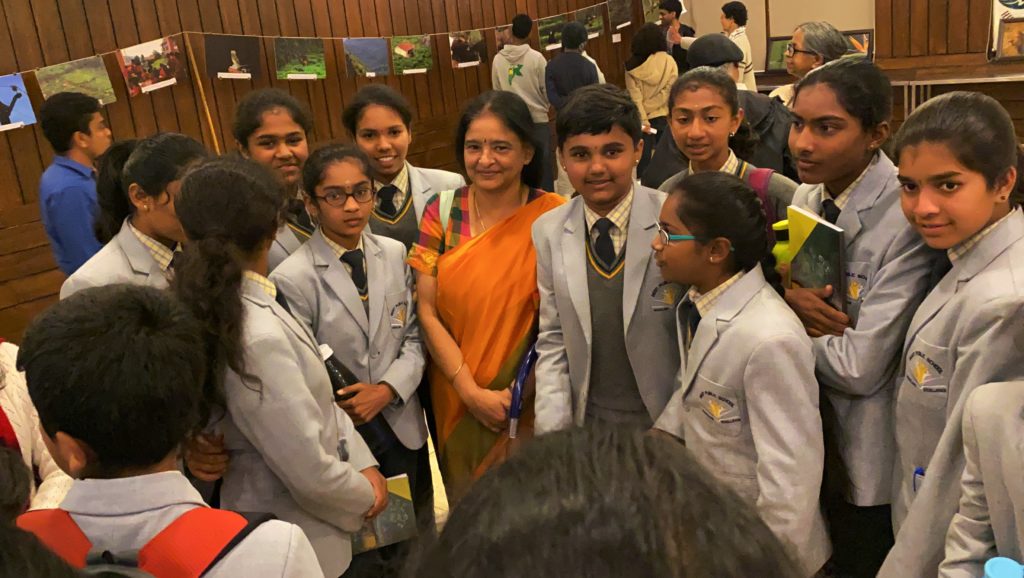To quote Isak Dinesen from ‘Out of Africa’, “to be a person is to have a story to tell”. And that is what we strove to bring to the Nilgiris, in this first film festival on the theme of ‘Nature and People’ – stories of people and their lands, from across the Indian peninsula; from coastlines to mountain tops; from the deep sea diversity to the agrarian richness of our cultivated fields; Indigenous knowledge, rich and replete with an understanding of the ecological balance of resource consumption and sustainability; and current day challenges of development in fragile ecosystems.
A misty rain filled morning (of the usual kind in the Nilgiris) on the 16th of November, 2019, saw an enthusiastic group of adults and children assembling at Hotel Vivek in Coonoor for a eclectic mix of short documentaries, from film makers with varied backgrounds but with a common passion for telling stories for social change. Organised by the Nilgiri Natural History Society and Keystone Foundation, the event was supported by the Rohini Nilekani Philanthropies. A one of a kind event, this was the first non-ticketed festival in the Nilgiris, that focused on people and the biodiversity around them, giving it the centre stage.
With the objective of inspiring and generating awareness among people about the interconnected-ness of all life, the 1-day event began with two premiering films that brought the oceans all the way upto our high hills – while ‘Coral Woman’ spoke about the destruction wrought by our actions on marine life, ‘Fishing in Palk Bay’ provided hope from indigenous techniques of fishermen that were based on sustainable harvest of marine resources. This forenoon session closed with an interactive session with marine conservationists who had worked closely with the making of these films.
The afternoon opened with the musical lores of native crop varieties and a life of sustenance that revolved around them – be it the millet fields of Karnataka or the paddy wetlands of Goa. The films, ‘Kari Muduga, Billi Mudga’, and ‘The Granary of Salcete’, both poignantly juxtaposed traditional values and way of life with the modern day pressures of change – of livelihoods, farming techniques, economics focused yields, among others.
The last session took us back home to our roots – the wilderness of the western ghats. The films in this session, showcased the beauty and the beast within these fragile ecosystems – the immeasurable biodiversity of our shola forest grassland mosaic, as well as the continuous onslaught of developmental projects as we struggle to strike the balance between man and nature. The films brought to the forefront both the local pressures as well as global effects of climate change on landscape resilience, people and wildlife alike.
The event was very well received by the audience. Open to young students from schools across Coonoor and Kotagiri, it gave them an opportunity to glimpse into the natural treasures of our land, some of which were hitherto unknown to many. The common citizens were also both amazed at our natural heritage and appalled at our current state of the environment closer to home. The event also carried a wildlife photography exhibit, showcasing photographs from the Nilgiris and beyond – images that spoke about the flamboyant colours and personality of wildlife, of peaceful co-existence with humans as well as the crossroads of conflict and its devastating results on wildlife.
In this era of the Anthropocene, it is pertinent to recall what Marcel Proust says, “The real voyage of discovery consists not in seeking new landscapes, but in having new eyes”. We hope this series of screenings enable us to see our landscapes closer home with a fresh pair of eyes – sensitive and conscious of the fact that what is (present) and what will be (future) is dependent on our actions. With a promising debut, the festival hopes to bring more such thought provoking stories of nature and people in the years to come.

